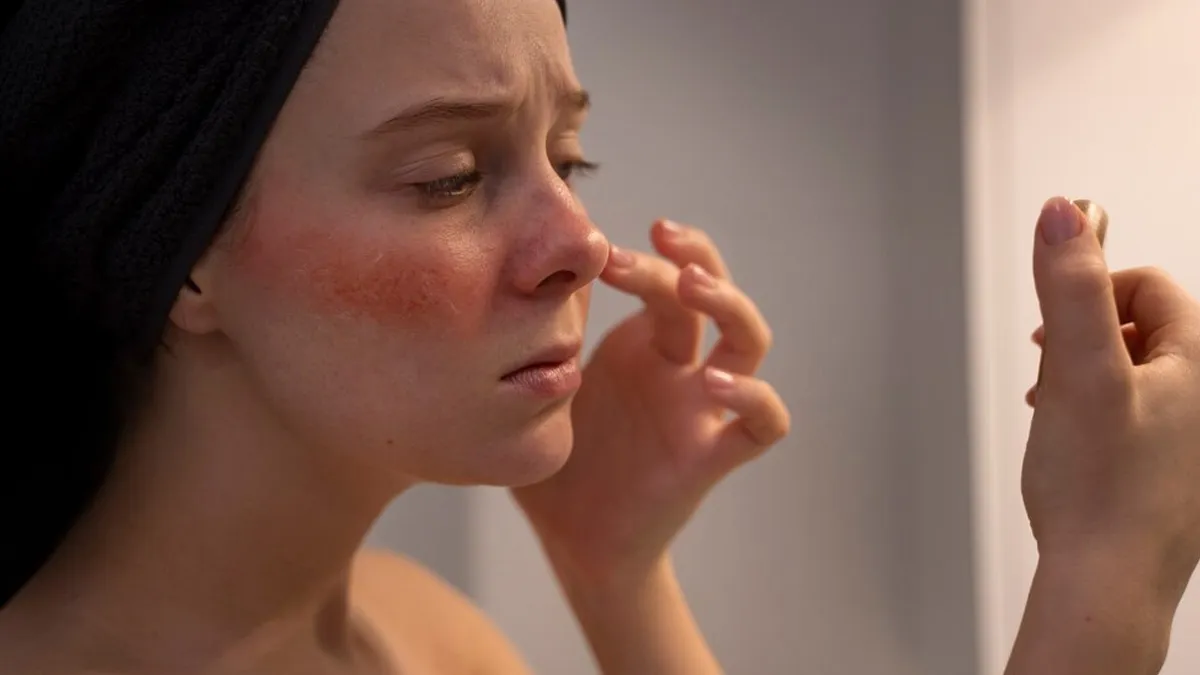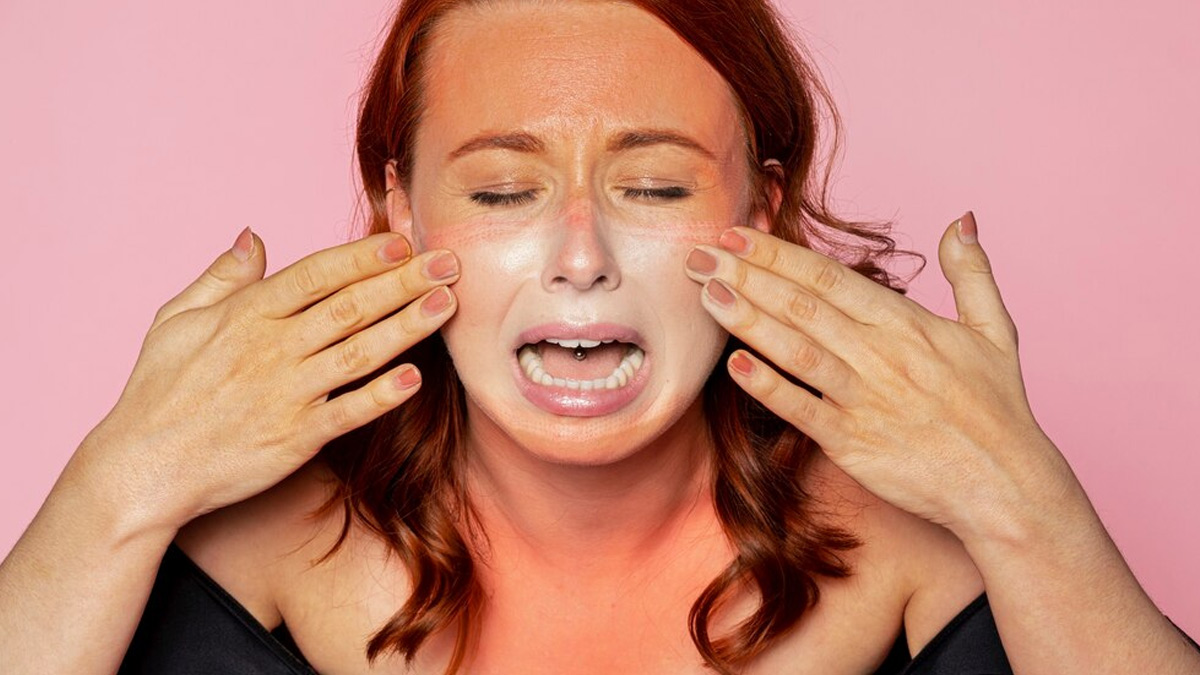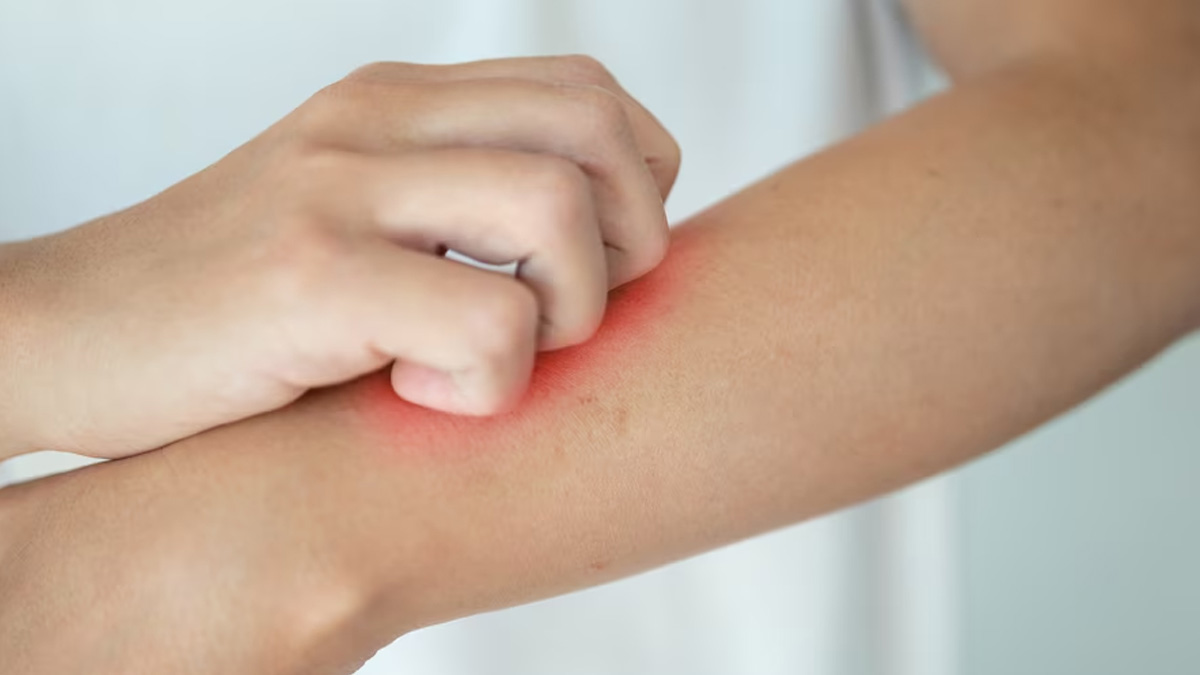
Our skin works hard to protect us every day. But sometimes, things we touch or come into contact with can irritate it badly. This is often called "skin poisoning" or contact dermatitis. It's not like drinking poison, but it can be really uncomfortable and make your skin look and feel awful.
Table of Content:-
In an exclusive interaction with the editorial team of Onlymyhealth, our expert, Dr Sanjeev Gulati, Department of Dermatology, Sharda Hospital - Noida, explained to us more about what skin poisoning looks like and how we can keep ourselves safe. Here is everything he shared with us and you need to know but let’s first understand what does skin poisoning actually mean.
What Does Skin Poisoning Actually Mean?
Dr Gulati explained that skin poisoning happens when your skin reacts to something it doesn't like. This could be anything from a new soap or lotion to certain plants or even metals. When your skin gets angry, it shows it in different ways.
Spotting the Signs and What to Look For
So, how do you know if you have skin poisoning? Dr Gulati shared some common signs to watch out for:
Redness: Your skin might become flushed or have red patches in the area that touched the irritating thing.
Itching: This is a very common symptom. The affected skin can feel incredibly itchy, making you want to scratch it constantly.
Rash: You might develop small bumps, welts, or blisters on your skin. These can sometimes be filled with fluid.
Dryness and Scaling: The skin might become rough, dry, and start to peel or flake.
Swelling: In some cases, the affected area can swell up.
Burning or Stinging: Your skin might feel like it's on fire or have a stinging sensation.
Dr Gulati emphasised that the way skin poisoning looks can vary from person to person and depends on what caused it. Sometimes, the reaction happens quickly, while other times it might take a few days to show up.

Also Read: What Happens When You Skip Every Day for A Month? Fitness Expert Shares Insights!
What Can Poison Your Skin?
Many everyday things can trigger skin poisoning. Dr Gulati highlighted some of the most common culprits:
Irritants: These are substances that directly damage the skin. Examples include harsh soaps, detergents, bleach, and some chemicals.
Allergens: These are substances that cause your immune system to overreact. Common allergens include certain metals like nickel (found in jewelry), fragrances in perfumes and lotions, preservatives, and plants like poison ivy or poison sumac.
Expert Tips for Staying Safe from Skin Poisoning
The good news is that there are things you can do to protect your skin. Dr Gulati shared some valuable advice:
Know Your Triggers: If you've had skin reactions before, try to figure out what caused them and avoid those things.
Patch Test New Products: Before using a new soap, lotion, or cosmetic all over your body, test a small amount on a less visible area like your inner arm. Wait 24-48 hours to see if there's any reaction.
Read Labels Carefully: Pay attention to the ingredients in the products you use. If you know you're allergic to something, make sure it's not listed.
Wear Protective Gear: If you're working with chemicals or doing gardening, wear gloves and long sleeves to protect your skin.
Wash Immediately: If you come into contact with something you think might irritate your skin (like a known allergen), wash the area thoroughly with mild soap and water right away.
Choose Gentle Products: Opt for fragrance-free and dye-free soaps and lotions, especially if you have sensitive skin.

When to See a Doctor
While mild skin reactions might go away on their own, Dr Gulati advises seeing a doctor if:
The rash is severe or widespread.
It's not getting better after a few days.
You have blisters that are oozing or crusting.
You have a fever.
The itching is unbearable and interfering with your sleep or daily activities.
Bottomline
Taking care of your skin is important for your overall health. By understanding what skin poisoning looks like and following these simple safety tips from Dr Gulati, you can help keep your skin healthy and happy!
Also watch this video
How we keep this article up to date:
We work with experts and keep a close eye on the latest in health and wellness. Whenever there is a new research or helpful information, we update our articles with accurate and useful advice.
Current Version